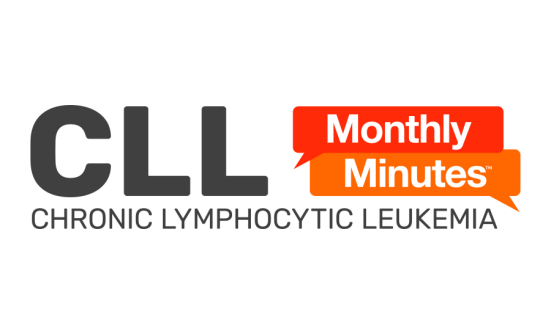The targeted therapy venetoclax was approved in 2018 as a combination therapy with rituximab for the treatment of adult patients with relapsed or refractory chronic lymphocytic leukemia, or CLL. In 2019, approval was additionally granted for use in patients with newly diagnosed CLL. Key to the initial approval were the results of the MURANO study, which showed that more patients with relapsed or refractory CLL had deep responses and longer time to disease progression when they took a combination of venetoclax plus rituximab compared with an older chemotherapy regimen of bendamustine plus rituximab. Recently, investigators presented new data on patients from MURANO, half of whom had been followed for 5 years since the study began.
The MURANO study included 389 patients: 194 received venetoclax plus rituximab and 195 received bendamustine plus rituximab. Based on the new data, the chance of disease worsening or death was 81% lower with the regimen containing venetoclax than with the chemotherapy-containing regimen. Half of all patients receiving the venetoclax regimen were alive and had no disease progression after 4.5 years, whereas half of the patients on the chemotherapy regimen had died or had disease progression after approximately 1.5 years. Overall, patients receiving the venetoclax regimen were 60% less likely to die compared with those receiving the chemotherapy regimen. The researchers estimated that 5 years after receiving the venetoclax regimen, approximately 82% of patients would still be alive compared with approximately 62% of patients who received the chemotherapy regimen.
A closer look at the data showed that certain patients receiving the venetoclax-containing regimen were more likely than others to have a favorable survival outcome. For those patients who completed the full 2-year course of venetoclax without having disease progression and undetectable numbers of leukemia cells, approximately 95% were expected to still be alive after 3 years. However, for patients who completed the 2-year therapy without disease progression but had small numbers of leukemia cells that could be detected (also called minimal residual disease), approximately 85% were expected to still be alive after 3 years.
Because of the long follow-up period of this study, investigators were able to track what happened to patients who completed the course of venetoclax with undetectable numbers of leukemia cells. At the time of this analysis, approximately 39% of these patients continued to have no detectable disease and no disease progression, whereas approximately 57% showed some number of leukemia cells had returned. (Approximately 5% of patients developed disease progression before they were shown to have minimal residual disease.) For those patients who went on to develop minimal residual disease after completing the venetoclax regimen, half had done so by about 19 months. Some of these patients also went on to having disease progression starting at approximately 19 months. Looking closer, investigators were able to identify certain genetic changes that increased a patient’s risk of developing minimal residual disease or going on to disease progression.
No new safety issues were seen in this analysis, which continued to support that venetoclax plus rituximab is a generally well-tolerated, effective treatment for patients with relapsed or recurrent CLL.
Reference
Kater AP, Kipps TJ, Eichhorst B, et al. Five-year analysis of MURANO study demonstrates enduring undetectable minimal residual disease in a subset of relapsed/refractory chronic lymphocytic leukemia patients following fixed-duration venetoclax-rituximab therapy. Presented at the 62nd American Society for Hematology Annual Meeting and Exposition; December 5, 2020. Abstract 125.















